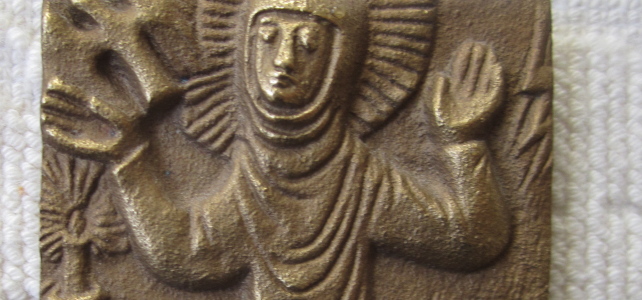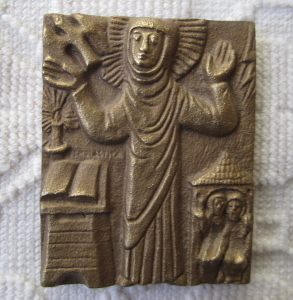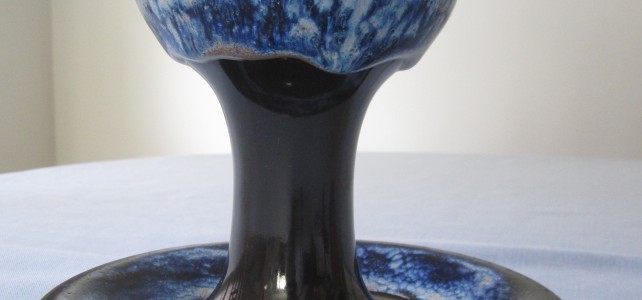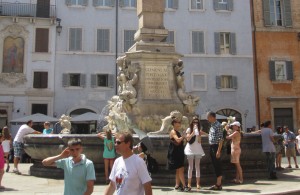
PHOTO: Mary van Balen
Here I am, at the beginning of three days off. I began well enough, attending morning mass with a handful of other parishioners, most of whom are regulars in the mornings. I’m not. My friend, Fr. Denis, greeted me with his dazzling smile and a hug. “What a good surprise to have you here. Maybe today’s readings will provide you with a story for your work.”
As Denis said in his homily, he read the short version of the account from Daniel, figuring we could fill in the other few pages that read like modern soap operas. Nothing changes. In the Old Testament reading, two old men with egos smarting after a beautiful young woman spurned their sexual advances, accused her of adultery. They couldn’t get their stories straight when questioned by Daniel, and instead of condemning the woman, Daniel pronounced a gruesome punishment for her accusers: being split in two by sword-wielding angels.
The New Testament reading featured adultery as well. This time the woman had been caught in the act. They guy as well, I presume, since it takes two, but he slipped away unscathed, leaving the woman to face the righteous crowd eager to stone her to death. Enter Jesus. He bends down and draws something in the sand, then instructs the one who has not sinned to throw the first stone. Well, that pretty well doused their enthusiasm, and they walked away, forced to reflect on their own sins. Jesus didn’t condemn anyone; he simply instructed the woman to go and sin no more.
Forgiveness and mercy. Encouragement. And a dose of reality: None of us is without failings. Maybe that’s why it’s easier to focus on the sin outside of us rather than what’s closer to home. It’s the old story of getting all worked up over the speck in your neighbor’s eye while ignoring the log in your own.
The story I took away from mass wasn’t the ever-present struggle with weakness and the propensity to do what we know isn’t good for us or for the world. Like letting water run when you brush your teeth. Or pouring pesticides that kill bees on your garden. Or wasting time or food. Or letting anger and anxiety get the best of you instead of “being peace.” Or ranting about the sorry state of Congress.
No. I walked out of there grateful that Jesus didn’t call down avenging angels or condemn anyone, but instead invited them to reflection and a fresh start.
I drove home and indulged in celebration of my three days off by making and sharing blueberry pancakes and bacon with my daughter. Someone once told me that we should seize every opportunity to celebrate, and I follow that advice as often as possible.
Then, instead of getting right to work on all the things I hoped to accomplish in the next seventy-two hours, I succumbed to distractions like buying a coffee while shopping for a few groceries, cleaning the kitchen, and checking email. Not bad. Then I played two games of spider solitaire. Talk about wasting time. It takes awhile because when it becomes obvious that the game is bound to end with a low score, I don’t finish it, but start over, hoping for better cards.
Flipping the cover down over my iPad, I lit my prayer candle and finally settled into work on a book project and readings for a class, counting on Jesus’ mercy and a fresh start.
© 2015 Mary van Balen






 Chapter 53
Chapter 53 

